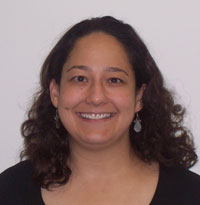 |
James Sorrell, M.D. |
 |
Chelsea Chesen, M.D. |
 |
Martin Wetzel, M.D. |
 |
Todd Stull, M.D. |
To help address this issue, the UNMC Department of Psychiatry will host a symposium titled “Challenges and Innovations in Mental Health for the College Student,” on Friday, Nov. 16, at the Scott Conference Center, 6450 Pine St., from 8 a.m. to 4:30 p.m.
The target audience for the symposium is physicians, nurse practitioners, physician assistants, mental health professionals, social workers, nurses, college student services staff and counselors. The cost to attend is $79 for professionals and $39 for students in the health professions.
The symposium will feature the latest information on the mental health challenges and psychiatric issues encountered in the college setting, including recent innovations in care. Topics will include binge drinking and substance misuse, suicide and prevention, relationship violence, eating disorders, attention deficit disorder and cross-cultural perspectives in late adolescent-young adult development.
“Information about issues students encounter on our campuses is minimal at best,” said James Sorrell, M.D., associate professor in the UNMC Department of Psychiatry. “Quality information is important for those who work with students.”
Of a sample of 47,202 students at 74 campuses across the country in 2004, 14.9 percent of students reported, “having ever been diagnosed with depression,” up from 10.3 percent from a 2000 report.
Of the 14.9 percent, more than a quarter said they were currently in therapy for depression, and more than a third of those students said they were taking medication for depression. More than 40 percent of men and 50 percent of women reported having experienced incidences of depression so severe it was difficult to function.
Along with depression and other mental health issues, related problems such as binge drinking also remain prevelant, Dr. Sorrell said.
“Academic institutions have instituted different programs to inform students on the dangers of binge drinking,” he said. “There has not been a consensus on how to educate students on the issue of binge drinking.”
UNMC Department of Psychiatry faculty members Chelsea Chesen, M.D., Todd Stull, M.D., and Martin Wetzel, M.D., also will speak at the symposium.
Other presenters will be Jill Brown, Ph.D., of Creighton University’s Department of Psychology; Maria de Guzman, Ph.D., of child, youth and family studies at the University of Nebraska-Lincoln (UNL); and Robert Portnoy, Ph.D., of counseling and psychological services at UNL.
Also participating will be Kirk Luder, M.D., consulting psychiatrist, Student Health/Counseling Services, Washington and Lee University in Lexington, Va.
Those interested in attending should contact Joan Husted, 559-6235 or jhusted@unmc.edu from 9 a.m. to 3 p.m.